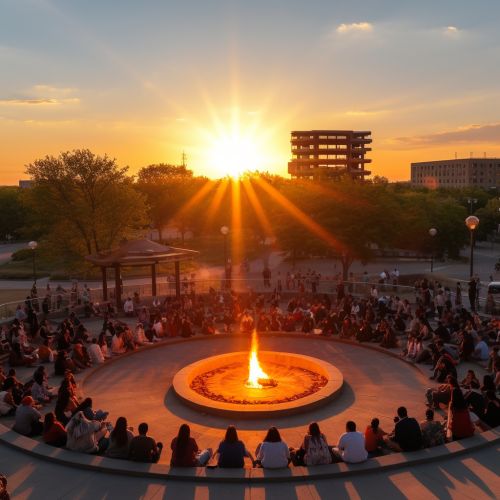Wichita, Kansas
Geography
Wichita is located in south-central Kansas on the Arkansas River. The city lies within the humid subtropical climate zone, characterized by hot, humid summers and cold, dry winters. The city's topography is generally flat with occasional hills and bluffs.


History
The area was first settled by the Native American Wichita people in the 1860s. Wichita was officially incorporated as a city in 1870. The city experienced rapid growth during the late 19th century due to its position as a destination for cattle drives from Texas. The city's economy diversified into manufacturing and aircraft production during the 20th century.


Economy
Wichita's economy is diverse with key industries including manufacturing, healthcare, and education. The city is known as the "Air Capital of the World" due to its significant aircraft manufacturing industry, with companies like Spirit AeroSystems and Textron Aviation having major operations in the city. The healthcare sector is another significant part of the city's economy, with Via Christi Health and Wesley Medical Center being among the city's largest employers.


Demographics
As of the 2020 census, Wichita had a population of 389,938, making it the largest city in Kansas. The city has a diverse population, with a mix of races and ethnicities. The city's age distribution is fairly balanced, with a median age of 34.2 years.


Education
Wichita is home to several higher education institutions, including Wichita State University, the third-largest university in Kansas. The city's public school system, Wichita Public Schools, is the largest school district in Kansas.


Culture
Wichita has a vibrant cultural scene, with numerous museums, galleries, and performing arts venues. The city hosts several annual events and festivals, such as the Wichita River Festival and the Tallgrass Film Festival. The city is also home to a thriving music scene, particularly in the genres of jazz and blues.


Infrastructure
Wichita is served by several major highways and Wichita Dwight D. Eisenhower National Airport, the largest airport in Kansas. The city also has a public transportation system operated by Wichita Transit.


